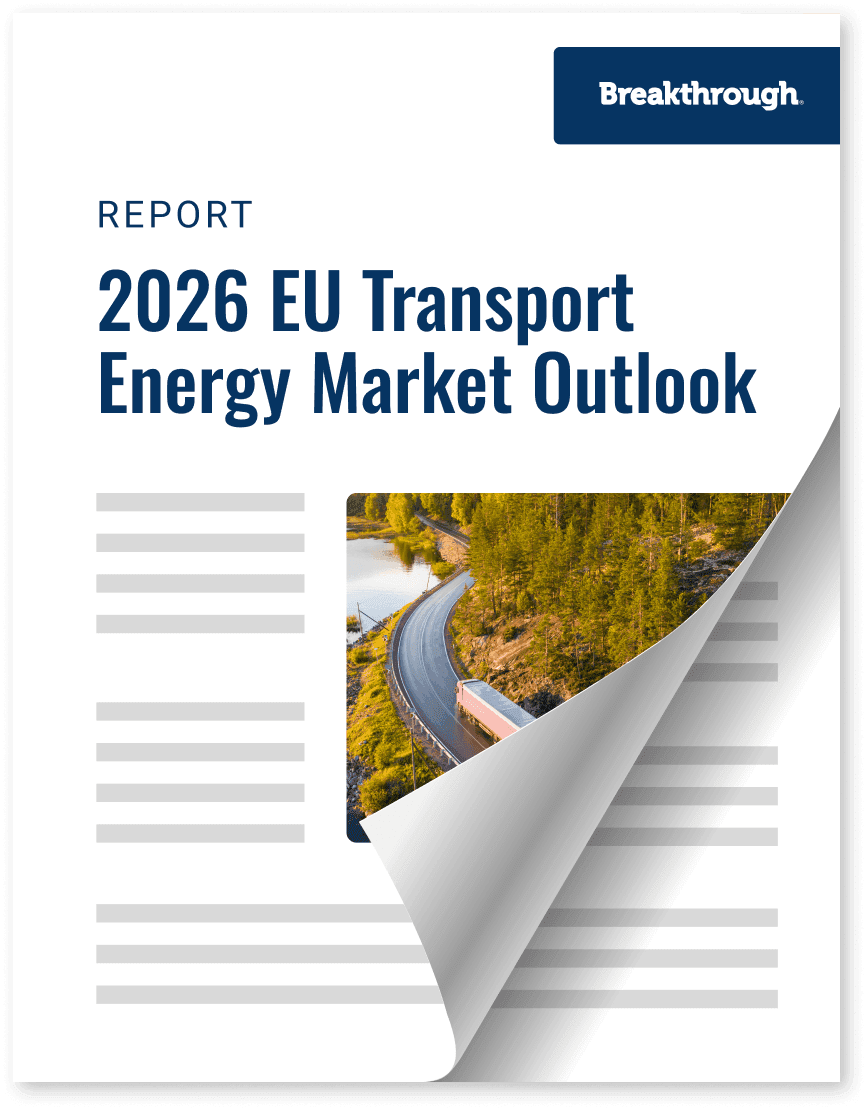2026 EU Transport Energy Market Outlook

Trending
Top Posts
Fuel
Turn Fuel Costs into Savings with Expert Fleet Optimization Strategies
7 min read
January 30, 2026
Market Events
How English Language Proficiency Enforcement Will Shape the 2026 Freight Market
5 min read
January 22, 2026
Freight
Reefer Rates Explained: What’s Driving the Trends?
5 min read
January 20, 2026
5 min read
May 4, 2018

Share:
Table of contents
Browse the table of contents to jump straight to the part you’re looking for
The International Maritime Organization (IMO) set a new global limit for allowable sulfur in fuel oil to be used on-board ships.
Read more about IMO 2020, marine fuel, and more on Matt Muenster’s author page.

Currently, large vessels use high-sulfur fuel types that, when burned, create emissions that cause detrimental health effects on humans—including respiratory distress and decreased lung function—threaten biodiversity, acidify waterways, and generate acid rain harming the environment. The effects of these emissions are pronounced among populations living near ports and coasts. For these reasons, among others, the IMO voted to abate sulfur dioxide (SO2) emissions by cutting global sulfur requirements in the maritime industry, significantly reducing the amount of SO2 emanating from ships.
The International Maritime Organization (IMO) agreed to reduce the sulfur content of marine fuel from 3.5 percent to 0.5 percent beginning January 1, 2020. The announcement of the impending seven-fold decrease in the amount of allowable sulfur in marine fuel, incited significant action and investment across the petroleum refining and maritime industries. The 2020 sulfur regulations are being called the most significant change in fuel specifications seen in decades.

Change this significant comes at a cost, and while vessel operators will be directly responsible for compliance, the final costs of the transition will most likely be passed along to shippers.
To meet these requirements, four options have emerged for ship owners and charterers moving forward:
The first logical pivot is to transition to marine fuel types that emit less SO2. Industry research suggests many vessel operators will address the sulfur regulations by switching to compliant low sulfur marine gas oil, though much of the industry is still assessing different options before choosing a strategy. Notably, the world’s largest shipping line – Maersk – has announced that it will transition completely to the low-sulfur fuel in order to comply. Insofar as the low-sulfur fuel will function seamlessly in current vessels, whereas other options would require expensive equipment changes, we expect that most providers will use the low-sulfur fuel to comply
Exhaust scrubber technology has had a slower-than-expected adoption rate, as these devices are expensive, and their installation can require long periods of inactivity for the ship. Furthermore, limits exist on scrubber installation capacity in a market where scrubbers are still in their infancy. Finally, they demonstrate longer-than-forecast payback horizons which makes the investment less attractive. IHS Markit estimated there were only 400-450 vessels with scrubbers installed or on order to end Q1 2018. Containerships accounted for about 10 percent of all vessels with scrubber adoption at the time. In all, scrubbers are a more costly means of meeting the requirement than other options, however their benefit lies in the appeal to continue using cheaper, high-sulfur fuel once they are in place.
LNG remains an emerging opportunity following carrier CMA CGM’s announcement of investing in LNG-fueled mega-containerships. While the overall number of LNG vessels remains small, the world’s leading LNG suppliers are working to provide adequate bunkering capacity to major markets. As alternative fuel adoption grows in the transportation industry, abandoning traditional fuel types has the potential to pay out in the long term, but in the near term poses challenges. Creating further complication in the marine industry, LNG equipment on ships takes up valuable cargo space that would otherwise be available on a conventional fuel vessel.
Procedures for enforcing the IMO’s 2020 sulfur regulations remain to be seen. Since the IMO is not an official governing body, buy-in from member countries to police individual vessels and ensure compliance is necessary. Generally an assumption is made, as with any new regulation that requires action from its constituents, that some players will simply violate the requirements and accept the consequences. While this is an option, the actual consequences of this strategy are ill-defined and introduce risk in vessel operators’ fleets—and ultimately their budgets.

The maritime industry is not the only industry motivated to make critical investments ahead of the global maritime sulfur cap. Petroleum refiners also need to address their capabilities to remain competitive in the post 2020 marketplace. Each refined barrel of oil produces a basket of products, including the residual, high sulfur fuel oil that will no longer be permitted on maritime vessels. Many refiners have addressed the looming regulations by investing in equipment and processes to limit their production of high sulfur fuels. Like vessel operators, refiners find themselves with four common paths for maximizing their economic performance through 2020:
Refiners that thrive under the new fuel specifications may find opportunities to grow their margins, while those refiners not well enough prepared for the change may struggle to sustain their business.
Read more about our marine fuel management solution to see how you can navigate changes in the industry, without incurring unnecessary costs. You can also contact us directly to discuss the implications these changes could have on your supply chain.

7 min read
January 30, 2026
Maximize performance with proven fleet optimization strategies. Learn how to manage driver compliance and leverage expanding fuel margins for real savings.
Read more
5 min read
January 22, 2026
Stricter English Language Proficiency rules are impacting driver capacity. See our data on how this is leading to upward linehaul rate pressure in 2026.
Read more
5 min read
January 20, 2026
Understand the latest trends in reefer rates. Our data analysis dissects if the market is in a seasonal swing or facing a true inflection point.
Read more